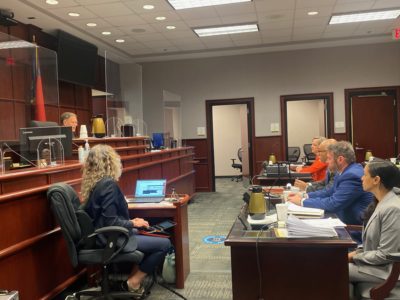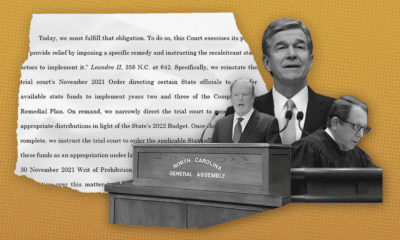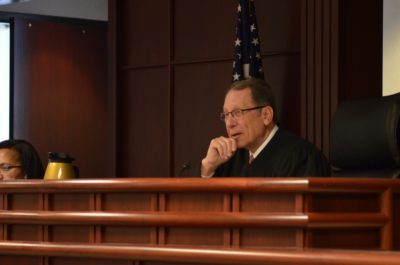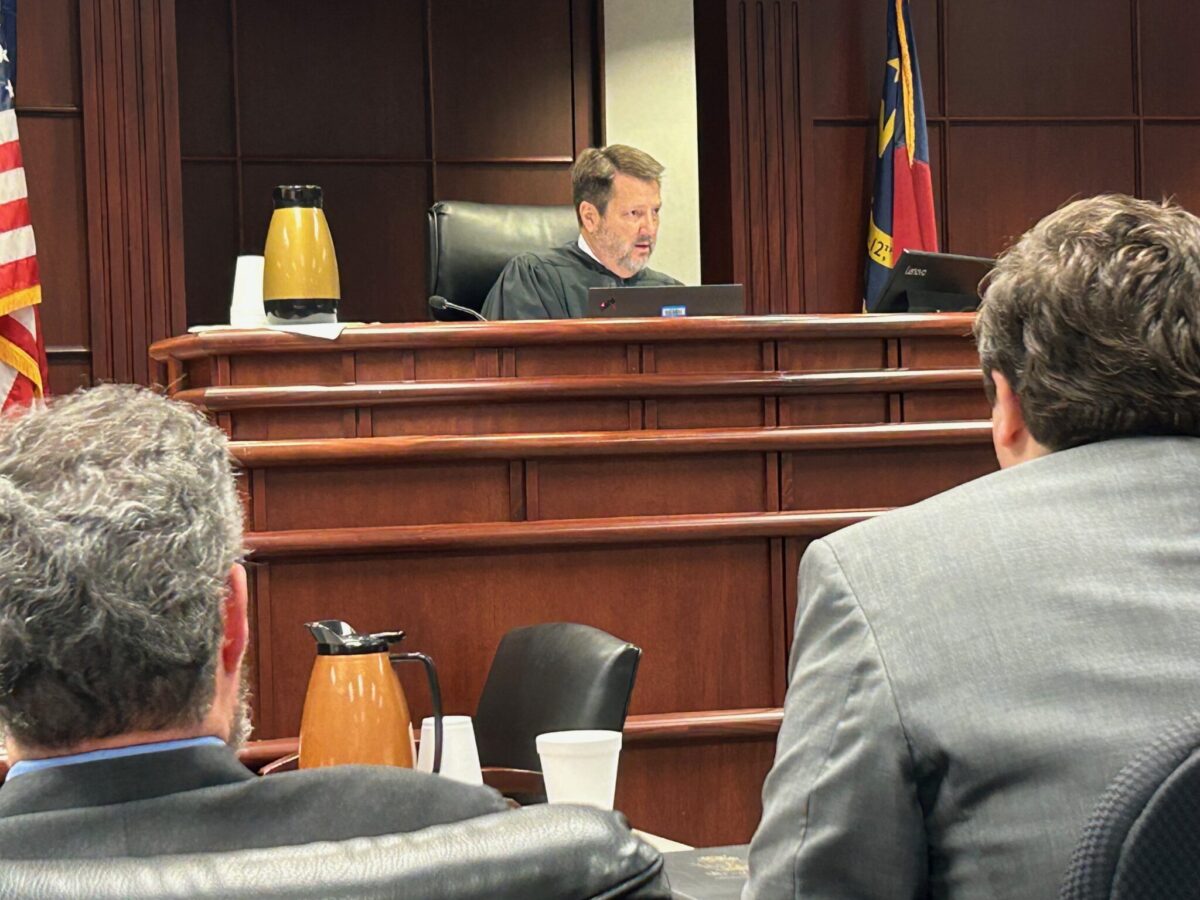
|
|
A Superior Court judge held the first hearing Friday in the Leandro case since a major Supreme Court decision in late 2022.
The top court told the state in November to comply with a lower court order to transfer millions of dollars to fund a comprehensive plan aimed at getting the state in compliance with its constitutional duty on education. But, the way forward for the case still isn’t clear.
Ultimately, Superior Court Judge James Ammons told parties in the case to file briefs by March 15 and then meet again on March 17 at 10 a.m. to discuss what amount of money remains to be transferred to fulfill year three of the comprehensive plan.
“I think you all have made me see the light that that’s about all I have to do,” Ammons said.
The Leandro case began nearly 30 years ago when families from five low-wealth counties sued the state, saying it was not meeting its obligation to educate all students equally. The state Supreme Court has previously said in the case that North Carolina’s children have a right to the “opportunity to receive a sound basic education” and that the state had not lived up to that constitutional requirement.
In 2021, a previous judge in the case, David Lee, ordered the state to turn over $1.7 billion to fund two years of a comprehensive plan the court decided was the best way to ensure the opportunity for a sound, basic education for all students.
That number was later adjusted after the passage of the the 2021 budget to account for items funded by the biennium budget. The new number was $785 million.
Lee’s order ultimately made its way up to the state Supreme Court, which ruled in November that the money needed to be transferred. They sent the case back down to the trial court to determine how much money still remained to be paid out in year three of the comprehensive plan following the release of a budget by the General Assembly in 2022.
However, the Supreme Court was majority Democrat last year. Party control flipped after the November elections.
In the new year, General Assembly leaders and the state controller asked the Supreme Court to put back in a stay on the money transfer while justices of the top court considered further arguments. The new Republican-led Supreme Court ruled just last week that the transfer order should halt while it considered the position of the state controller.
Under Lee’s order, the state controller is integral in the role of transferring the money for the comprehensive plan. Both the state controller at the time of Lee’s order as well as the current state controller argue that the state controller can only transfer money when the General Assembly appropriates funds, and that to do otherwise would open the state controller and the controller’s staff to criminal and civil liability.
“The controller is the hog in the breakfast here,” said Robert Hunter, attorney for the state controller. “The controller is being asked to disburse money. He’s going to be slaughtered for the bacon here.”
During much of the hearing today, Ammons tried to get up to speed on where the case stood and what the scope of his responsibility was given the fact that the Supreme Court had reinstated the stay on the money transfer.
He determined that most of the parties in the case agree on how much money remained to be funded from Judge Lee’s original order. The remaining money pertains to year three of the comprehensive plan, and plaintiffs, as well as attorneys representing the state, agreed that the total amount remaining is $677,801,707.
That would be distributed in the following amounts to three different agencies:
- Department of Health and Human Services: $133,900,000
- Department of Public Instruction: $509,701,707
- UNC System: $34,200,000
However, Matthew Tilley, an attorney representing Republican legislative leaders, said he disputed those figures and wanted an opportunity to be heard.
“We believe there are additional issues about the math that need to be addressed to you,” he said.
Hashing that out will be the purpose of next week’s hearing.
Ultimately, whatever calculation Ammons decides on, the money won’t be funded until the Supreme Court makes a move with regard to the argument from the state controller.
Ammons initially wondered whether he should determine the calculations, order the transfer of money, and then stay his own order while the case is further resolved in the Supreme Court. But he decided that the stay from the Supreme Court on the money transfer prevented him from doing anything more than determining how much money was owed.
Ahead of the hearing, the Every Child NC coalition held a press conference in front of the courthouse. The coalition — comprised of organizations, parents, educators, and students — was speaking in support of funding and implementation of the comprehensive plan in the Leandro case.
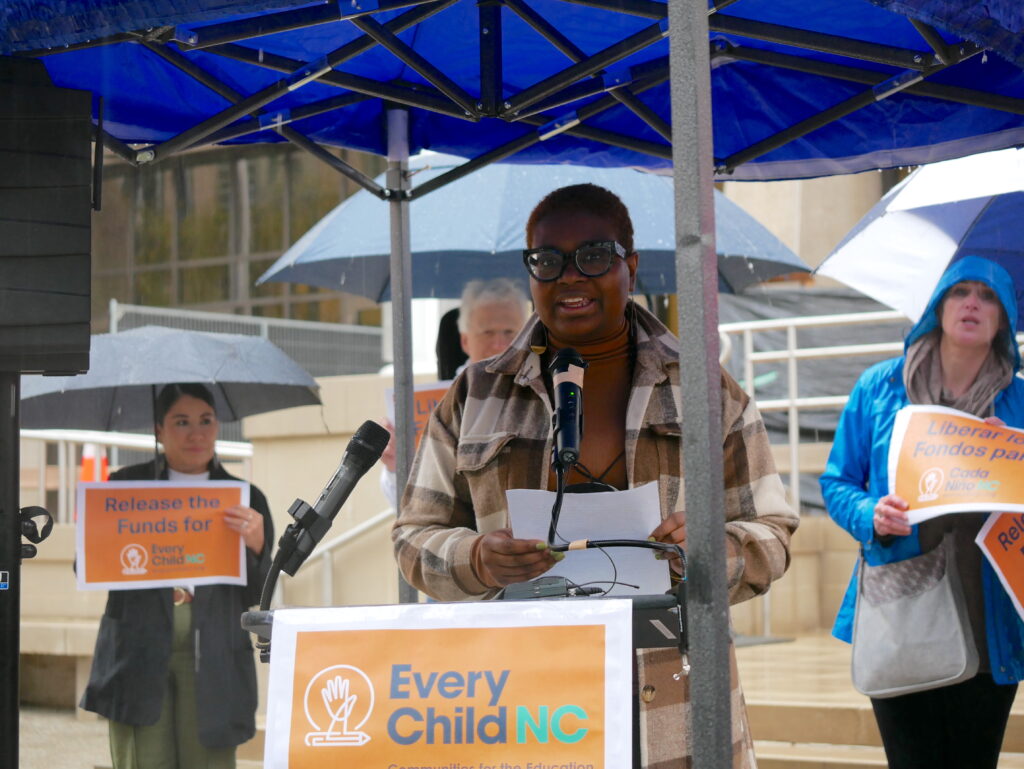
“We know that there are legislators who have signaled a long time ago that they have no interest in working on our behalf. We take this stand because we love our communities, our families, our students, and we know that when we stand up for our communities, everyone benefits,” said Letha Muhammad, co-chair of Every Child NC and co-executive director of Education Justice Alliance.
Angus Thompson, one of the original Leandro plaintiffs from Robeson County, also attended the press conference.
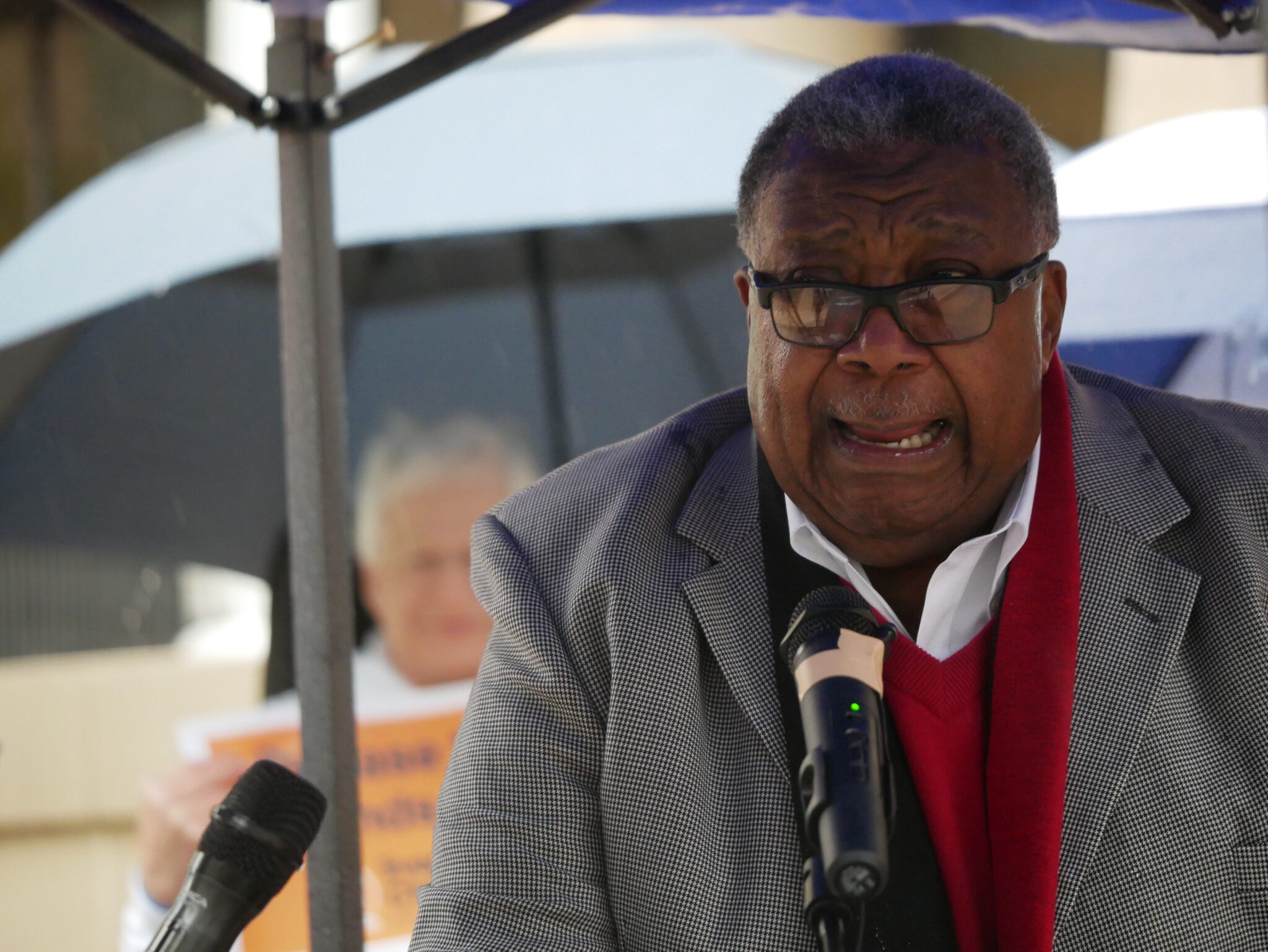
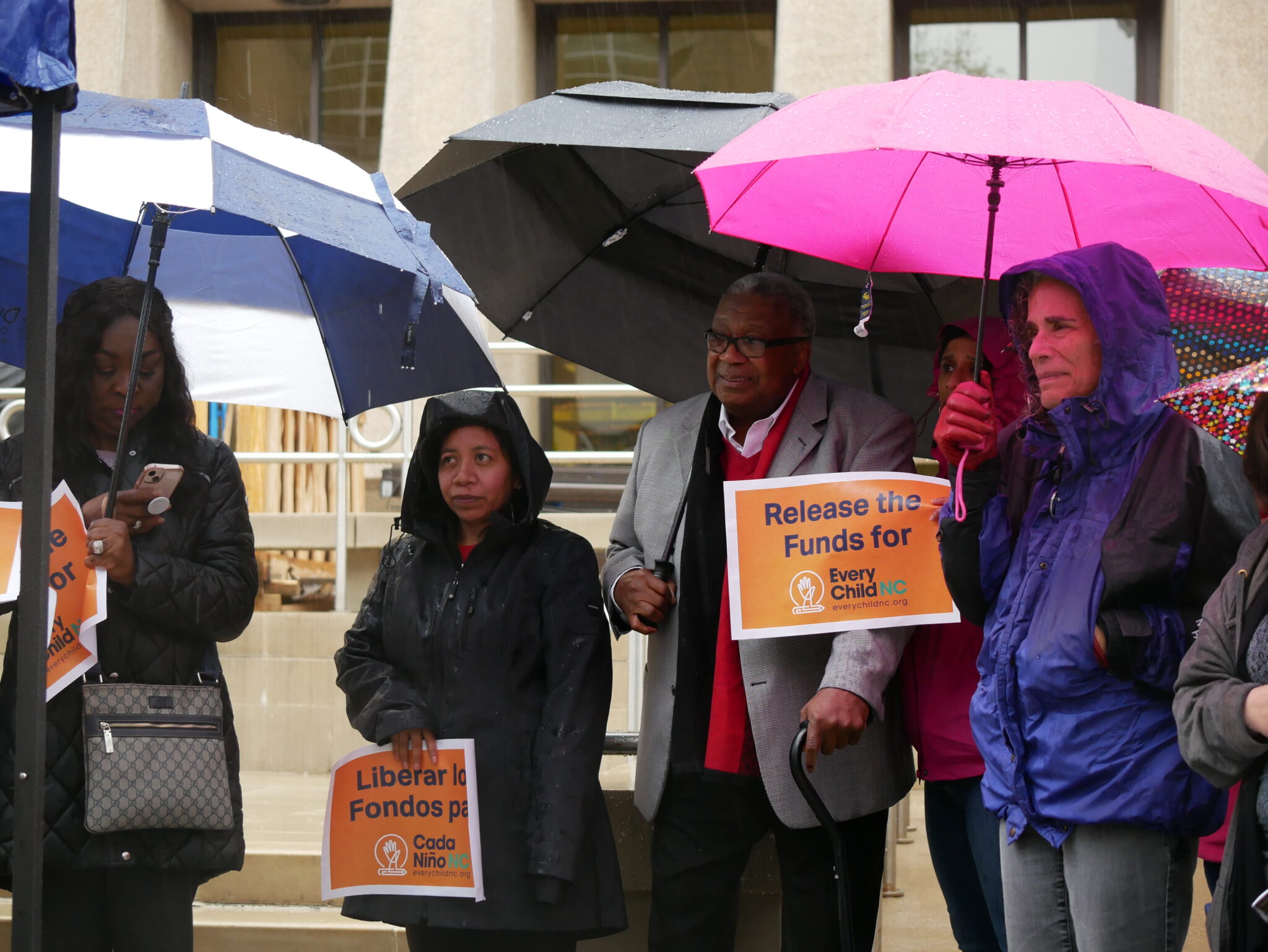
“As an original plaintiff of Leandro, I understand what a struggle is like. It’s been 29 years since 1994 when this suit was filed among the five counties in this state … and we’re still in the struggle,” Thompson said. “And I want everybody to be encouraged. There are three branches of government … there’s the legislative, there’s the executive, and there’s the judicial. Well here today we have the fourth branch of government, and that’s we the people. And we the people are going to support our children.”



